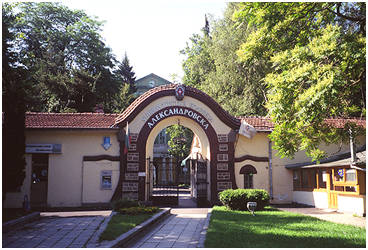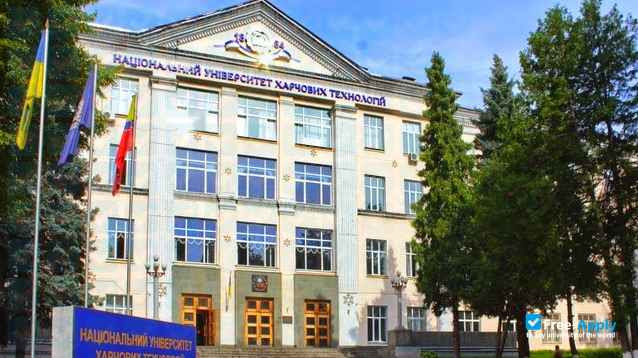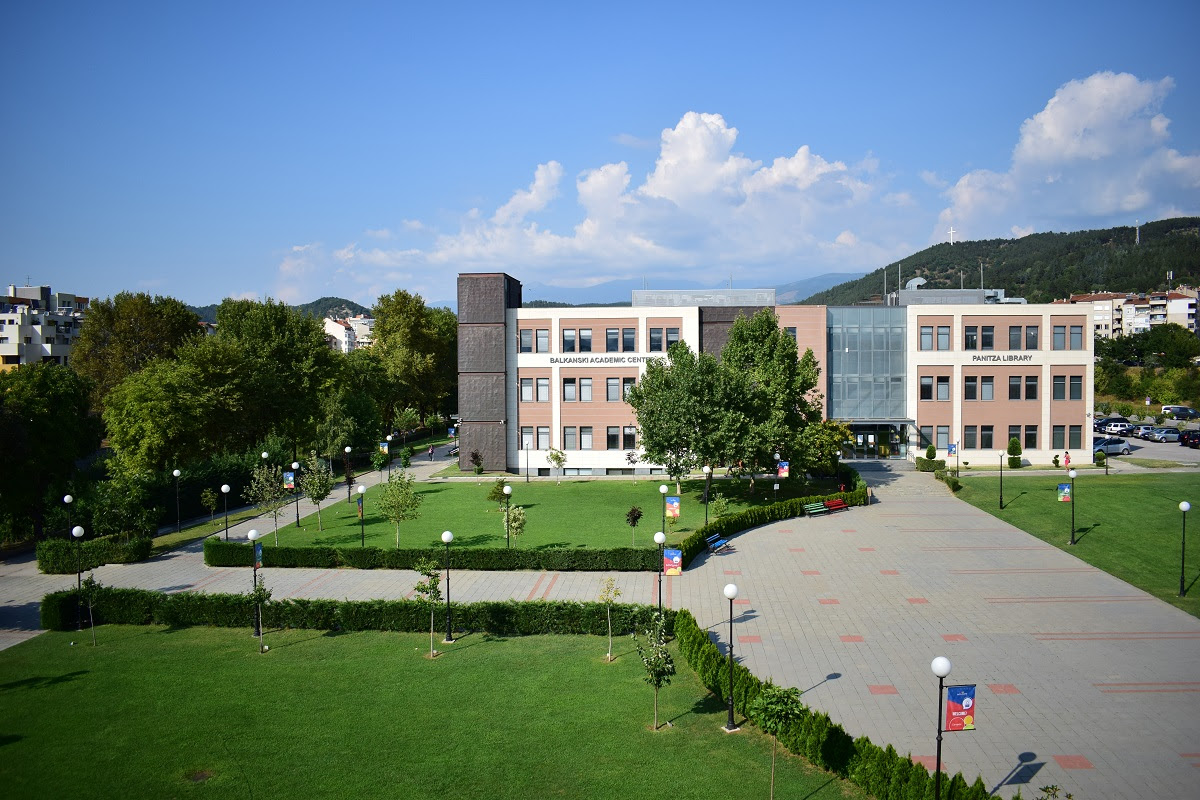AUBG students are energetic, enthusiastic, and highly intelligent. The multicultural student body includes 30 nationalities. Diversity is honored, tolerance is demanded, and academic excellence is always the intellectual goal. Courses are taught by a high-quality, international faculty experienced in teaching in a multicultural, learner-centered environment. The interactive teaching found at AUBG fosters the development of intellectual reflection, effective communication, personal initiative, individual self-expression, and civic responsibility.
Many AUBG graduates continue their education at prestigious universities in the United States and Europe. Others have already made an important mark in the private and public sectors in the region. Educated in the spirit of the liberal arts tradition, AUBG graduates become competent professionals with a broad and integrated vision of contemporary society that enhances their capacity as citizens and future leaders of the region.
In September 1991, the American University in Bulgaria (AUBG) opened its doors with a first-year class of 208 students and sixteen full-time faculty members. The first American-style, undergraduate liberal arts educational institution in Eastern Europe, AUBG is a unique cooperative venture established with the support of the U.S. and Bulgarian governments, the Open Society Institute, and the University of Maine. Today, the University has grown to 1100 students and 70 faculty members.
The AUBG experience is characterized by close student-faculty interaction, classes in English, a diverse student body, and in Blagoevgrad a residential experience in U.S.-style dormitories.
AUBG is a privately funded, not-for-profit institution. Tuition and private donations, as well as grants from the U.S. Agency for International Development (USAID) and the Open Society Institute, finance its educational activities

In 1950 Medical Faculty was set apart from Sofia University and became independent structure as Medical Academy with two faculties – medicine and dentistry. Later on, in 1951 a Pharmaceutical faculty was associated. Next decades several administrative transformations took places – Higher Medical Institute (1954-1972), Medical Academy (1972-1990) and again Higher Medical Institute. Since 21 of May 1995 according to the decision taken by the National Assembly, the Higher Medical Institute became a Medical University. Today, Medical University Sofia has leading positions as educational, scientific and health care institution in Bulgaria and it’ level corresponds to the world medical standards. High level of theoretical and practical training of students, post-graduate students and specialists is organized according to the requirements of government standards of education and health care politics but with a sufficient academic independence.

The UFT now offers Bachelor’s, Master’s and PhD programs in the technology, engineering and economics of the food, flavour and biotechnological industries. At the beginning of the new 21st century, the University of Food Technologies employs an impressive, highly qualified scientific and teaching staff. It provides training in modern and up-to-date programs. Thus, it can meet one of the greatest challenges to mankind: achieving quality of life through safe and healthy food. It is our firm belief that this can be guaranteed by the young specialists who receive outstanding training at the UFT.
The University of Food Technologies-Plovdiv (UFT) was established officially on 10-th June, 1953 by the decree No 230 of the President of Parliament according to which the UFT-Plovdiv became an independent higher educational establishment. The first Rector of the newly founded Higher Institute of Food and Flavor Industries – Prof. Ilyia Pavlov, was appointed on July 31, 1953. At the beginning some of the departments (Electrical Engineering, Wine -Making Technology, Technology of Milk and Milk Products, Technology of Fruits and Vegetables) were situated in the building of the ex French College. The Dean’s Office and the Departments of Inorganic Chemistry, Organic Chemistry, Mathematics, Mechanical Engineering, Physics, Technology of Meat and Fish, etc. occupied the reconstructed tobacco store house “Draganovs` Brothers” situated in the near neighborhood. The Department of Technology of Tobacco and Tobacco Products was situated in tobacco store house “Tomasjan”, in 24 “Veliko Tarnovo” street, and the Department of Vegetable Oils, Soaps and Essential oils – in 8 “Cyril and Methodi” street. The official opening ceremony of the building, where the UFT has been accommodated by now was on February 10th, 1963. During the years 1963 – 1967 the Sports and Recuperative Center on the dam of Batak was established, and during the years 1972 – 1976 the Sports Complex on the banks of the Maritza River was opened.
During its development, the UFT-Plovdiv had developed versatile international contacts and an active international activity. In 1965 the first bilateral co-operation agreements were signed with the Moscow Institute of Food Industry, Russia and the Polytechnic Institute of Galatz, Romania. During the period 1927-1978, bilateral cooperation agreements were signed with the Moscow Technological Institute of Meat and milk Industries (now the Moscow State University of Applied Biotechnology), the Kiev Technological Institute of Food Industries, the Krasnodar Polytechnic Institute – Russia, the Humboldt University – Berlin, Germany, the Chemical and Technological Institute – Prague, Czechoslovakia, universities in Szeged, Hungary.
In 1979 – 1990 the international cooperation was extended, and agreements with the Agricultural University – the Athens, Greece, the Leningrad Technological Institute of Refrigeration Industry, the Odessa Technological Institute, the Moscow Institute of Refrigeration Machine building, the Kutaj Technological Institute, Russia, the Agricultural Academy – Poznan, Poland, a bilateral co-operation with the Krasnodar Polytechnic Institute, Russia and with the Technical University – Berlin, Germany, to which the Faculty of Food Technology of the Humboldt University had joined, were signed. Some new agreements were signed with the Moscow State University of Applied Biotechnology – Russia, the Kuban State University – Krasnodar, Russia, the Agricultural University of the Habei Province of China.
Since 1994, the Institute was included in the educational research projects financed by the EC on the programs, respectively TEMPUS and COPERNICUS, and an active international exchange programs were implemented, as follows: in 1998 the UFT-Plovdiv participated in 17 projects. From 1994 to 1998, in TEMPUS projects 162 lecturers had experienced, and in COPERNICUS project – 52 ones. Lecturers from the UFT-Plovdiv visited different European universities to be able to prepare new lecture courses and to improve their own lecture courses. More than 10 students also had taken partial training abroad.
Today, the UFT-Plovdiv is a prestigious national food science, technology and education center. The University has adopted the three level structure of training – Bachelor – 4 years, Master – year and a half and PhD – 3 years.



Comment here